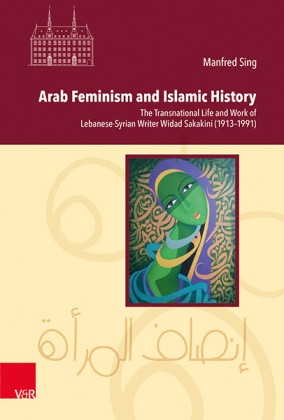Arab Feminism and Islamic History - The Transnational Life and Work of Lebanese-Syrian Writer Widad Sakakini (1913-1991)
| Verlag | Vandenhoeck & Ruprecht |
| Auflage | 2022 |
| Seiten | 332 |
| Format | 16,5 x 2,5 x 23,8 cm |
| Gewicht | 657 g |
| Artikeltyp | Englisches Buch |
| Reihe | Veröffentlichungen des Instituts für Europäische Geschichte Mainz Band 255 |
| ISBN-10 | 3525573340 |
| EAN | 9783525573341 |
| Bestell-Nr | 52557334A |
This is the first study to comprehensively explore the work of Lebanese-Syrian novelist Widad Sakakini. It makes her feminist voice audible, unjustly neglected in feminist studies until now. The analysis contributes to a better understanding of the Arab women's movement and its difficulties in the twentieth century.
controversy and possiblities and limitations of Widad Sakakini's approach about the wiwes of the Prophet Muhammad
Widad Sakakini_s work reflects the transformations of Arab societies since the beginning of the twentieth century, particularly the changing gender roles. This study of her shows how she took globally circulating feminist concerns, translated them into her local contexts, and rooted them in Arab-Islamic history through her essays, short stories, and biographies. As an "Arab feminist," being both a feminist and a Muslima went together well for her. By navigating between liberal, socialist, nationalist, and Islamist peer groups, she simultaneously negotiated her own multiple forms of belonging. Taking her life as an example of a transnational biography, this study further argues that it would be unsatisfactory to reduce her complex affiliations and trajectory, spanning Lebanon, Syria, and Egypt, to a mere Islamic, secular or Syrian identity. Rather, she was concerned with balancing and reconciling supposed opposites, such as East and West, reason and spirituality, men and women.

